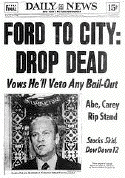
|
||||||||||||||||||||||||||||||||||||||||||||||||||||||
|
Audio of interview with Stephen Evans of BBC World Service. Jose Marinez: Poor Man's SMS Gateway. Rex Hammock: Web 3.0 delayed until fourth quarter. Peter Rojas asks if there's interest in an unconference to discuss the podcast player. I would certainly participate and help organize the event. Podcasting won't be fully ready for prime time until there's a player designed specifically for podcasting.
Todd Cochrane says Google buying Feedburner is "pure evil." What do you think of Fleck? Movie of the beautiful beach, pool and patio at the hotel. Congrats to the Knight Award winners, many of whom are readers of this weblog. Congrats to Feedburner, whose $100 million payday was confirmed by Mike Arrington. Let's keep an eye on Google hoping they are kind to the ecology of the RSS coral reef. My talk went well, and I did talk briefly about how we should think about Web 3.0. I know other people have said it's the Semantic Web, and maybe that use of the name will stick. I'm with Tim Berners-Lee who says Web 2.0 is really what the web itself is about. He always intended it to be a two-way medium. First, I think of Web 2.0 as the Two-Way Web, the Read-Write Web, the Web of User-Generated Content. It's Flickr and blogs and wikis. It's everybody creating the medium for everyone else. Imho, the next step after that, I hope, is the professional media fully embracing the new media, no longer see it as a threat to their continued employment. See amateur public writing, the former audience who is no longer silent, as sources who can get attention for their ideas without going through an intermediary.
I totally disagree with my friend Robert Scoble who says that newspapers are dead. There's always been too much made of death in the tech world, in fact newspapers are still published, you can pick one up at any airport or train station. Many people have them delivered at home. We often go to newspaper websites for the news. Sure, there are problems, and the world is changing, but imho, we'll all do better if something called the San Francisco Chronicle continues to be published, even though the form of the newspaper will certainly change in the future. It would be a waste of a tradition, of a good coral reef, if newspapers really died. They need to change, and imho, when that change happens, we will safely be in the era of Web 3.0. If you have questions about this vision, please post a comment here.
We're hearing Cynthia Figge interview Janine Benyus about biomimickry. I'm interviewed later this morning on ideas for the future in blogging, podcasting, etc. Last night at dinner I talked with Stewart Brand about future-safing archives, so my schpiel about that is well-rehearsed. I'll certainly talk about that this morning. Here are some of the questions they asked me to address. What's on the horizon -- still OPML, podcast player (wifi, open to other apps, recording), real unconferences. Service I'd like to buy that isn't available right now -- future-safe web sites, relate this to conversation with Charlie Nesson. What is Web 3.0? Easy to answer. Stay tuned. |
Dave Winer, 52, pioneered the development of weblogs, syndication (RSS), podcasting, outlining, and web content management software; former contributing editor at Wired Magazine, research fellow at Harvard Law School, entrepreneur, and investor in web media companies. A native New Yorker, he received a Master's in Computer Science from the University of Wisconsin, a Bachelor's in Mathematics from Tulane University and currently lives in Berkeley, California. "The protoblogger." - NY Times.
"The father of modern-day content distribution." - PC World.
"Helped popularize blogging, podcasting and RSS." - Time.
"RSS was born in 1997 out of the confluence of Dave Winer's 'Really Simple Syndication' technology, used to push out blog updates, and Netscape's 'Rich Site Summary', which allowed users to create custom Netscape home pages with regularly updated data flows." - Tim O'Reilly.
Comment on today's On This Day In: 2006 2005 2004 2003 2002 2001 2000 1999 1998 1997.
|
|||||||||||||||||||||||||||||||||||||||||||||||||||||
|
© Copyright 1997-2007 Dave Winer. Previous / Next |
||||||||||||||||||||||||||||||||||||||||||||||||||||||

 I think it will continue to shrink until they accept bloggers and podcasters as legitimate sources of news and perspective, without interpretation by professional reporters.
I think it will continue to shrink until they accept bloggers and podcasters as legitimate sources of news and perspective, without interpretation by professional reporters.



